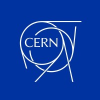
Micro Pattern Technologies Expert (EP-DT-DD-2024-203-GRAP)
Job Description
Your responsibilities
Micro Pattern Gaseous Detectors (MPGDs) are essential for future experiments due to their performance over large areas. With advancements in manufacturing and innovative concepts, MPGDs offer a range of options that push performance limits, adapting to diverse needs.
The CERN Micro Pattern Technology workshop, a leading developer of MPGD-based detectors, and the CERN Gaseous Detector Development (GDD) team, focused on detector design, assembly, and characterization, are key players in developing technologies such as GEMs, micromegas, THGEMs, and uRWELL.
This position focuses on developing expertise in MPGDs manufacturing processes, supporting existing solutions, and introducing new ones to meet CERN's strategic R&D program for future experiments. The candidate will :
- Contribute to the design, production, and characterization of MPGDs.
- Master fabrication techniques including resistive coating deposition (DLC, B4C), PCB production, thin film circuits, flex-rigid boards, chemical milling, fine-line flex circuits, and multilayer build-up with micro-vias.
- Work on interconnection devices and detector components, bridging the gap between nanometric and millimetric fabrication.
In the past 15 years, resistive layers in gaseous detectors have improved stability, spatial resolution, and rate capabilities.
To advance this, the MPT workshop has acquired a Magnetron Sputtering Machine to deposit thin resistive layers on large surfaces.
A key part of the role will involve operating this machine, optimizing its usage, and resolving deposition issues promptly, in collaboration with the DRD1 team to identify R&D opportunities and enhance the manufacturing and characterization of prototypes.
Your profile
Skills
- Experience in microfabrication techniques and thin films.
- Strong understanding of electronics and mechanics.
- Knowledge of particle detectors would be an advantage.
- Ability to work independently and collaboratively.
- Excellent communication and problem-solving skills.
- Fluent in English, the ability to work in French would be an advantage.
Eligibility criteria :
- You are a national of a .
- You have a professional background in Applied Physics, Engineering, Technology (or a related field) and have either : a Master's degree with 2 to 6 years of post-graduation professional experience;
or a PhD with no more than 3 years of post-graduation professional experience.
You have never had a CERN fellow or graduate contract before.
Additional Information
Job closing date : 08.01.2025 at 23 : 59 hrs CET.
Contract duration : 24 months, with a possible extension up to 36 months maximum.
Working hours : 40 hours per week
Target start date : 01-February-2025
This position involves :
- Participation in a regular stand-by duty, including nights, Sundays and official holidays.
- Work during nights, Sundays and official holidays.
- Work in Radiation Areas.
- Residence in the immediate vicinity of the Organization's installations.
- A valid driving licence.
- Stand-by duty, when required by the needs of the Organization.
- Work during nights, Sundays and official holidays, when required by the needs of the Organization.
Job reference : EP-DT-DD-2024-203-GRAP
Field of work : Applied Physics
What we offer
- A monthly stipend ranging between 6212 and 6828 Swiss Francs per month (net of tax) .
- Coverage by CERN's comprehensive health scheme (for yourself, your spouse and children), and membership of the CERN Pension Fund .
- Depending on your individual circumstances : installation grant; family, child and infant allowances; payment of travel expenses at the beginning and end of contract.
- 30 days of paid leave per year .
- On-the-job and formal training at CERN as well as in-house language courses for English and / or French.
About us
At CERN, the European Organization for Nuclear Research, physicists and engineers are probing the fundamental structure of the universe.
Using the world's largest and most complex scientific instruments, they study the basic constituents of matter - fundamental particles that are made to collide together at close to the speed of light.
The process gives physicists clues about how particles interact, and provides insights into the fundamental laws of nature. Find out more on
We are on a Quest. A Journey into discovery like no other. Bring your expertise to our unique work and develop your knowledge and skills at pace.
Join world-class subject matter experts on unique projects, in a Quest for greater knowledge and deeper understanding.
Begin your CERN Quest. Take Part!
Diversity has been an integral part of CERN's mission since its foundation and is an established value of the Organization.
Employing a diverse workforce is central to our success.




